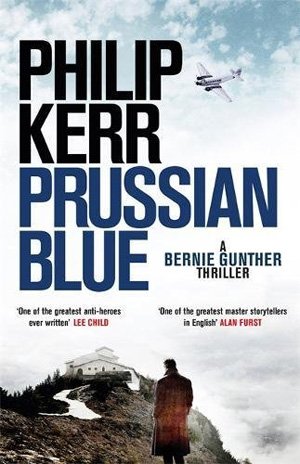 Written by Philip Kerr – If you’ve tried your hand at art, you might know that Prussian Blue is a dark pigment used in paints. You are probably less likely to know it is also the medical antidote to poisoning from certain heavy metals, including thallium. Thallium found favour with the various secret service agencies during the 1950s because it is tasteless and odourless and hence difficult for the victim to detect. Its effects don’t appear for 48 to 72 hours after ingestion, making it easy for an assassin to avoid suspicion.
Written by Philip Kerr – If you’ve tried your hand at art, you might know that Prussian Blue is a dark pigment used in paints. You are probably less likely to know it is also the medical antidote to poisoning from certain heavy metals, including thallium. Thallium found favour with the various secret service agencies during the 1950s because it is tasteless and odourless and hence difficult for the victim to detect. Its effects don’t appear for 48 to 72 hours after ingestion, making it easy for an assassin to avoid suspicion.
So, in 1956, in the South of France, it is with thallium poisoning that Burnie Gunther is threatened by General Erich Miekle, head of the Stasi, if he refuses to comply.
Created by Philip Kerr, Gunther is one of the most successful anti-heroes in crime fiction. He’s a World War I veteran, was a Kripo murder detective during World War II, and has floated around since the end of the war like a wanted criminal. To find out more, have a look at our primer all about the character here.
Miekle wants Gunther to travel to Britain to tie up the loose ends after a Stasi operation. If a certain ex-lover of Gunther’s should ever talk, she could cause serious embarrassment and Miekle’s solution is for Gunther to poison her. Just in case Gunther has any second thoughts, the general has arranged for an ex-Kripo colleague, one who knows Gunther well from a murder investigation at Hitler’s summer house just before WWII, to escort him on the mission.
Gunther may have no great affection for this woman any longer. He’s not likely to get squeamish as he dirtied his hands plenty working, however reluctantly, for the Nazis. However, there is a line that Gunther cannot cross. It proves easy enough for him to lose his handler, but he is one man against the Stasi, and he won’t be safe until he can get back onto German soil.
Kerr pulls a very smart trick, turning Prussian Blue into two very different but excellent stories. The first of these is a thrilling adventure, a deadly game of cat and mouse in the French countryside, as Gunther calls upon all his experience and cunning to evade the Stasi team that dogs his heels. There are echoes here of both John Buchan’s The Thirty-Nine Steps, and Geoffrey Household’s Rogue Male.
The second story is Gunther’s recollection of the investigation in the Bavarian Alps in April 1939. Gunther found himself a pawn in a power struggle between two of the most powerful Nazis in Germany, Martin Bormann and General Heydrich. An architect has been murdered at a gathering at Hitler’s summer house and Bormann is determined that the murder will be solved before Hitler’s expected return a few days later. If Hitler should get wind of the crime he may decide to move his power base to the capital, and Bormann would lose influence. Heydrich controls the police force and likes the idea of Bormann being in his debt, and so agrees to send his best detective – Gunther. Heydrich is unconcerned if Gunther solves the crime, but makes it clear that Gunther will be in trouble if he returns without sensitive information on Bormann that Heydrich can use against him.
Prussian Blue would be an exceptional achievement considered on its own, but it is incredible to think that this is the 12th novel in an on-going series which is yet to produce a dud. The research and accuracy of the historical setting match that of Alan Furst, but the hardboiled dialogue and Chandlerian turns of phrase raise Kerr’s work even higher. Part adventure thriller, part historical procedural, Prussian Blue and Bernie Gunther never make a mis-step.
Quercus
Print/Kindle
£9.49
CFL Rating: 5 Stars










